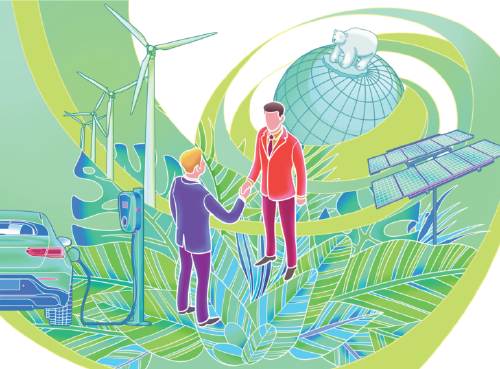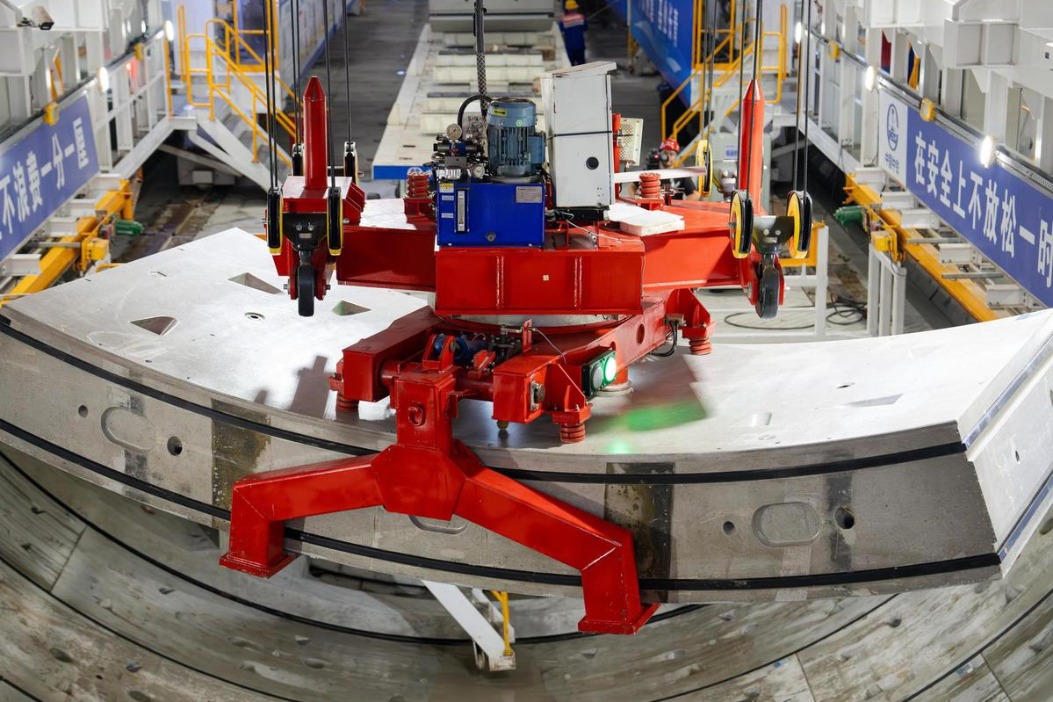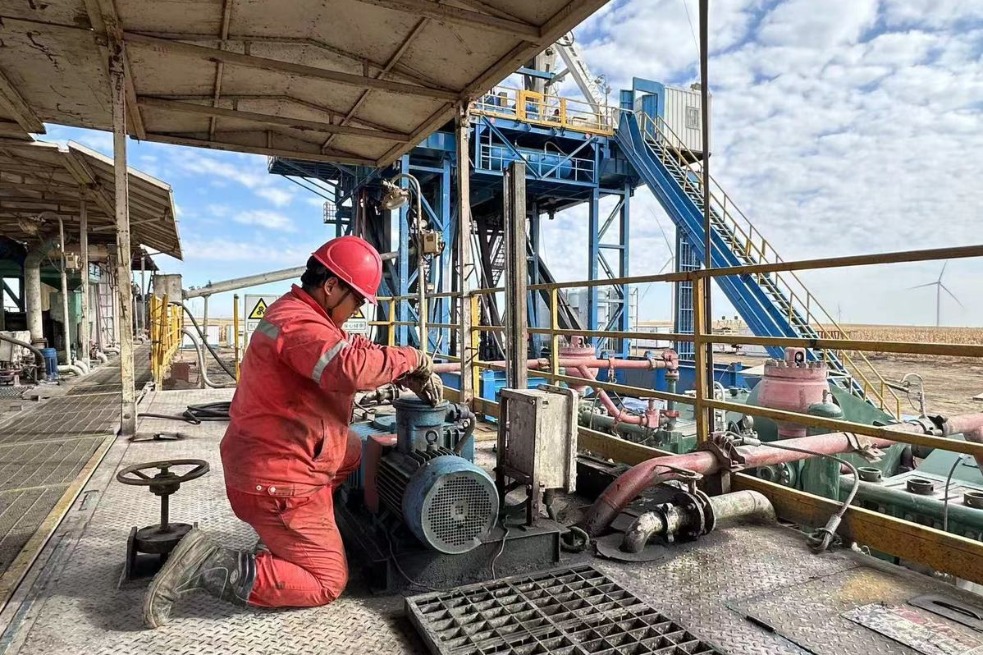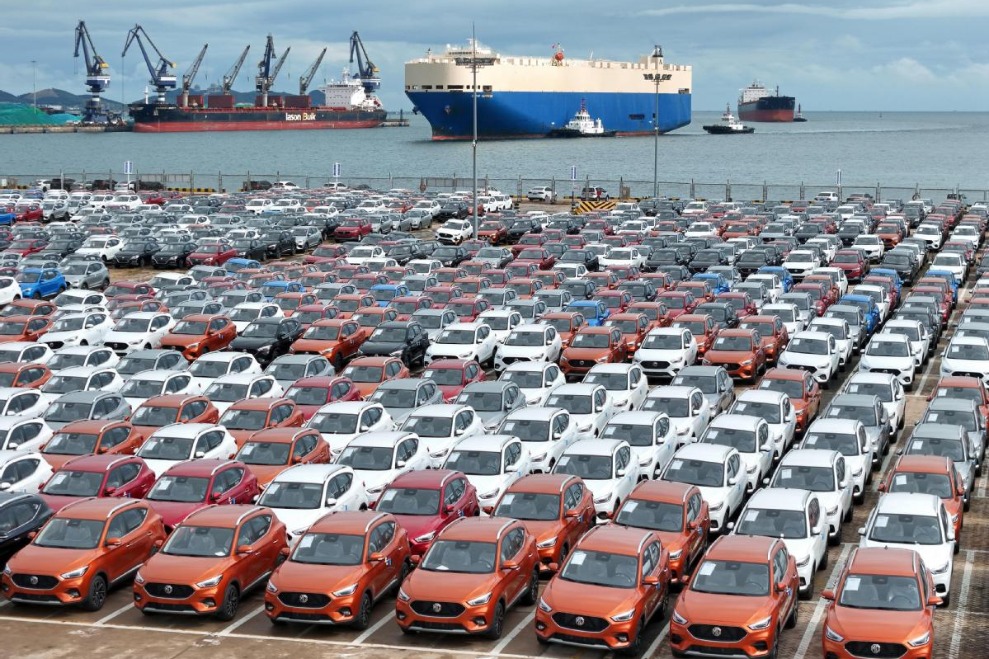More Sino-EU green collaboration urged
Significant complementarity in clean energy cooperation seen on both sides


Further efforts are needed to heighten collaboration between China and European nations in key areas of energy transition including decarbonization of power generation, renewable energies, sustainable recycling and the use of essential mineral resources to support global green development, said a recent report.
Jointly released by the Shanghai Institutes for International Studies (SIIS), and the Beijing office of Greenpeace, a global environmental protection organization, the report also underscored the rapid pace of global energy transition and technological advancements, with a particular emphasis on the growing significance of the clean energy sector as a focal point for cooperation between China and the European Union.
A key point emphasized in the report is the significant complementarity in clean energy cooperation between China and the EU, especially in sectors of technological innovation and industry standard development. The collaboration is not only motivated by policy incentives but also by shared interests in energy security and the promotion of renewable technologies.
"China and Europe exhibit substantial complementarity for cooperation in the realm of clean energy. This synergy is not only reflected in high-level coordination mechanisms but also tangible outcomes of their collaborative projects. Going forward, their increased support for decarbonization in the power sector and the advancement of green supply chains will be pivotal in driving the achievement of global climate objectives," said Yu Hongyuan, director of public policy and innovation studies at the SIIS.
The report pointed out that despite the progress in global climate negotiations, challenges persist in energy transition. While investments in clean energy have surged, there remains a risk of insufficient progress toward meeting the targets outlined in the Paris Agreement, which aims to strengthen the global response to the threat of climate change by keeping a global temperature rise this century well below 2 C.
Moreover, China and the EU confront distinct challenges in their energy transitions, with China aiming to reduce its use of fossil fuels — predominantly coal — while ensuring energy security. Meanwhile, disagreements between EU member states regarding energy policies impede the overall pace of the EU's transition, compounded by vulnerabilities in energy supply security stemming from external dependencies and geopolitical factors, said the report.
To address these challenges, Yu advocated for the promotion of city-to-city cooperation between China and Europe, highlighting China's robust cost-cutting capabilities in sectors like hydrogen-based green fuels, transportation and decarbonization. Yu said these areas present significant potential for collaboration, alongside sectors with high energy consumption such as steel and promising fields like offshore wind power generation.
Zheng Ying, a researcher at the China Society of Automotive Engineers, points out the ambitious targets set by the EU's Renewable Energy Directive, aiming for a renewable energy consumption rate exceeding 42.5 percent and potentially reaching 45 percent by 2030.
In 2022, the share of renewables in EU energy consumption was 23 percent, said the European Commission, the EU's executive arm.
"This necessitates a strong consumption capacity of renewables to support the development goal. Advancing the electric vehicle industry is an important way to achieve the goal and the EU is currently promoting EVs, which requires further adjustments for electricity market regulations. Given the EU's current focus on energy supply and pricing security due to the Russia-Ukraine conflict, the EU still has an interest in energy cooperation with China but it wants to ensure minimal disruption to Europe's pricing and supply systems in the energy industry," said Zheng.
"Take EV cooperation as an example. EVs' energy storage parts have significant impacts on the overall energy pricing in Europe."
Zheng added: "Further China-Europe collaboration requires more shared benefits. If Chinese enterprises, while exporting globally, can allow European companies or even the EU to share in these benefits, then from the EU's perspective, there would be greater consideration of aligning its development goals with its industrial support objectives."
- Forum highlights green energy partnerships amid climate challenges
- China mulls hiking levies on fuel vehicles
- China's bid to help green transition good for the world
- Over 150 countries commit to carbon neutrality targets, report says
- Clean energy, infrastructure and trade initiatives between nations




































